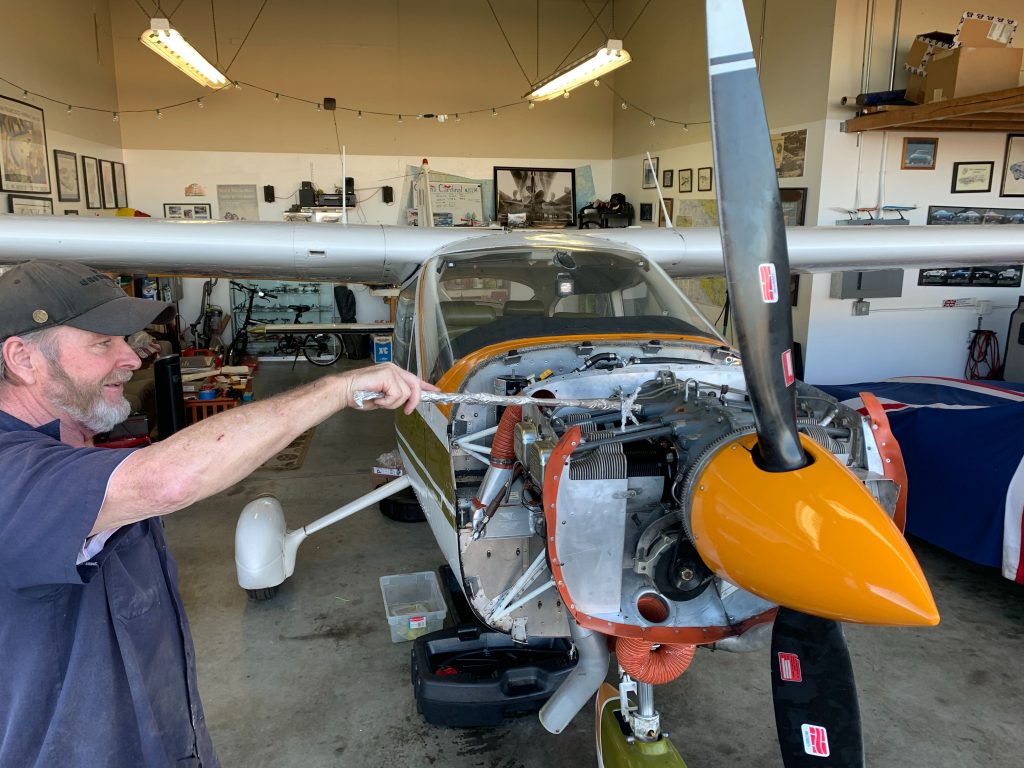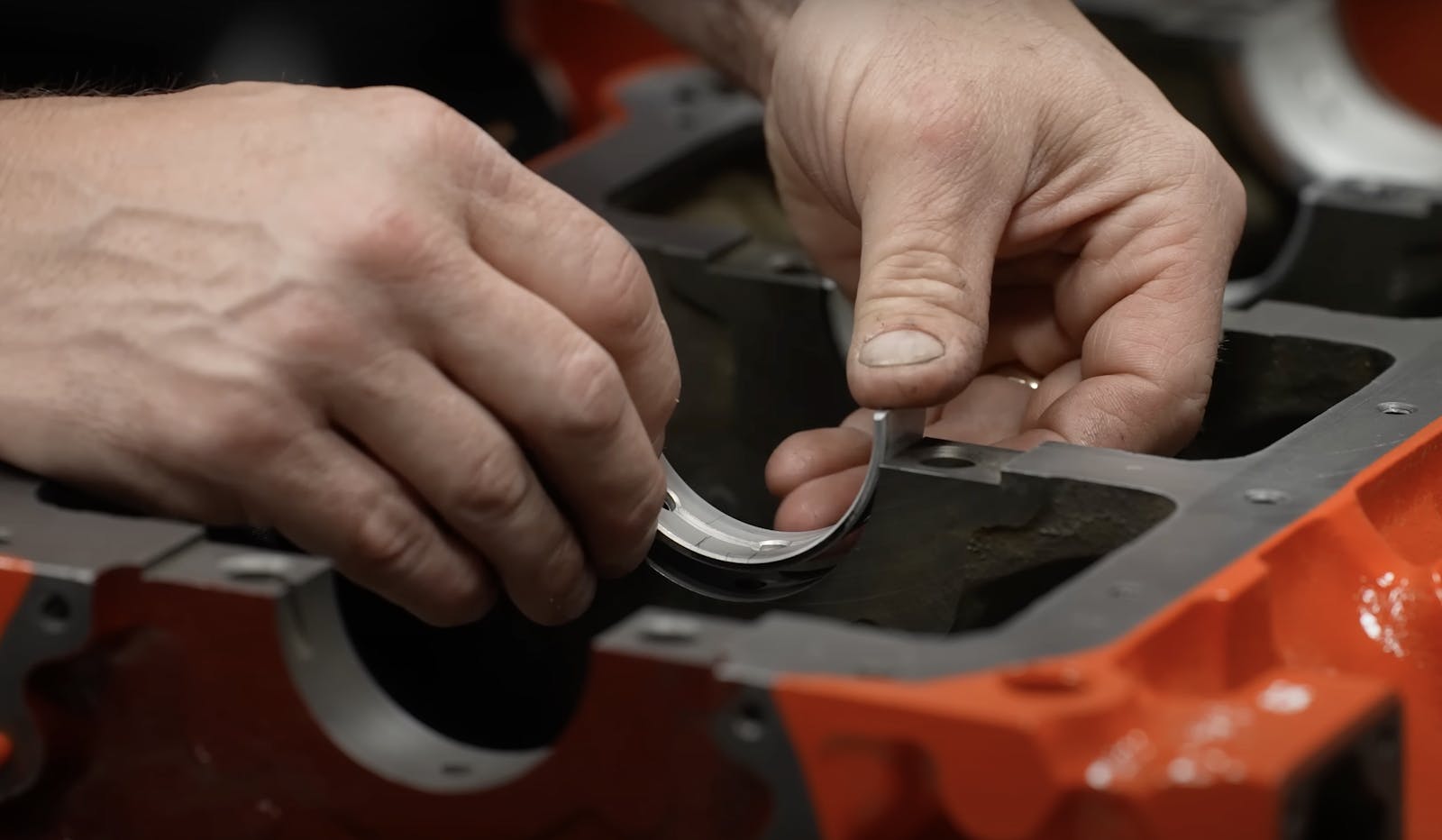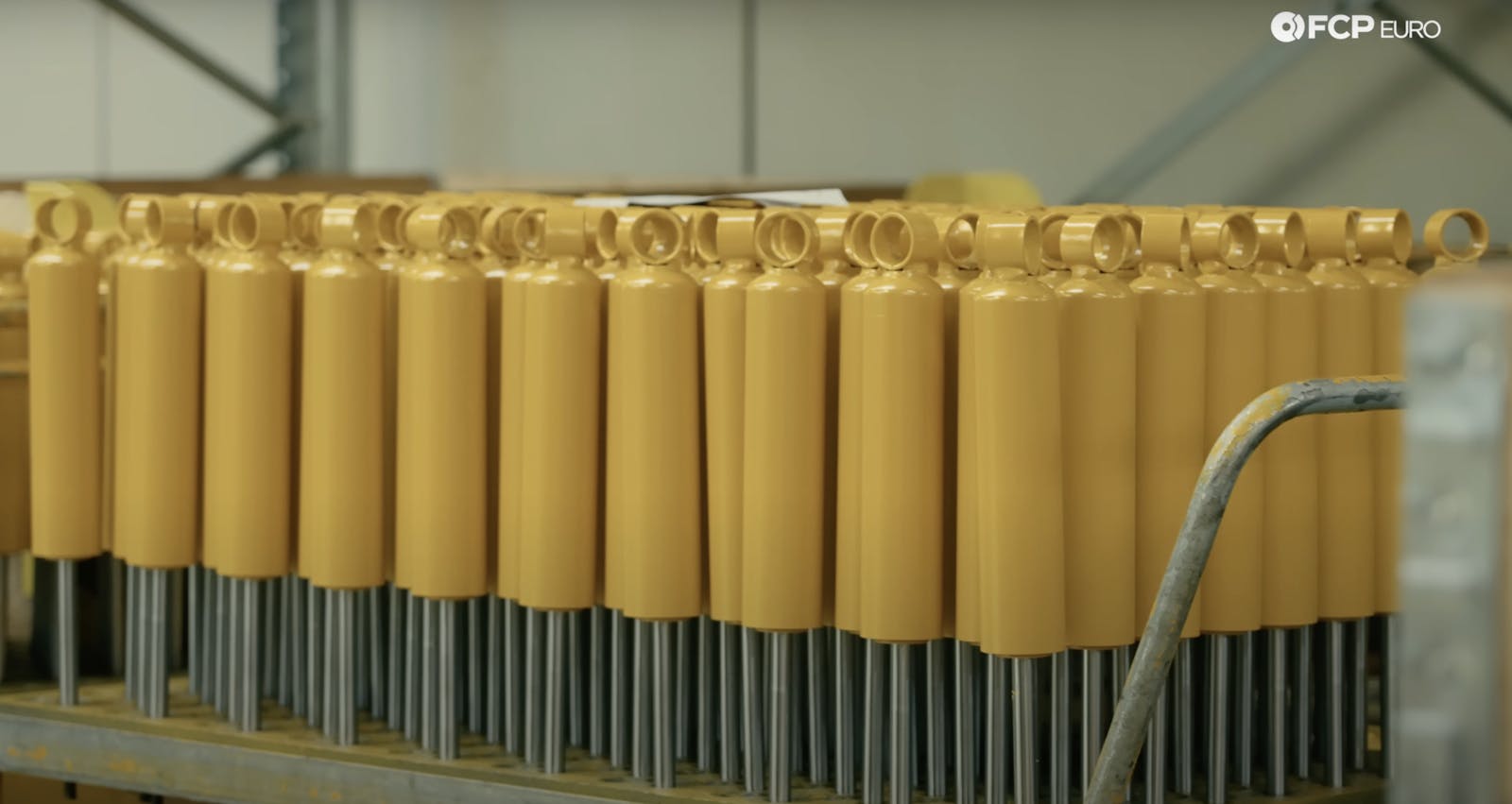Everybody needs a “Bob the Engine Guy” in their lives
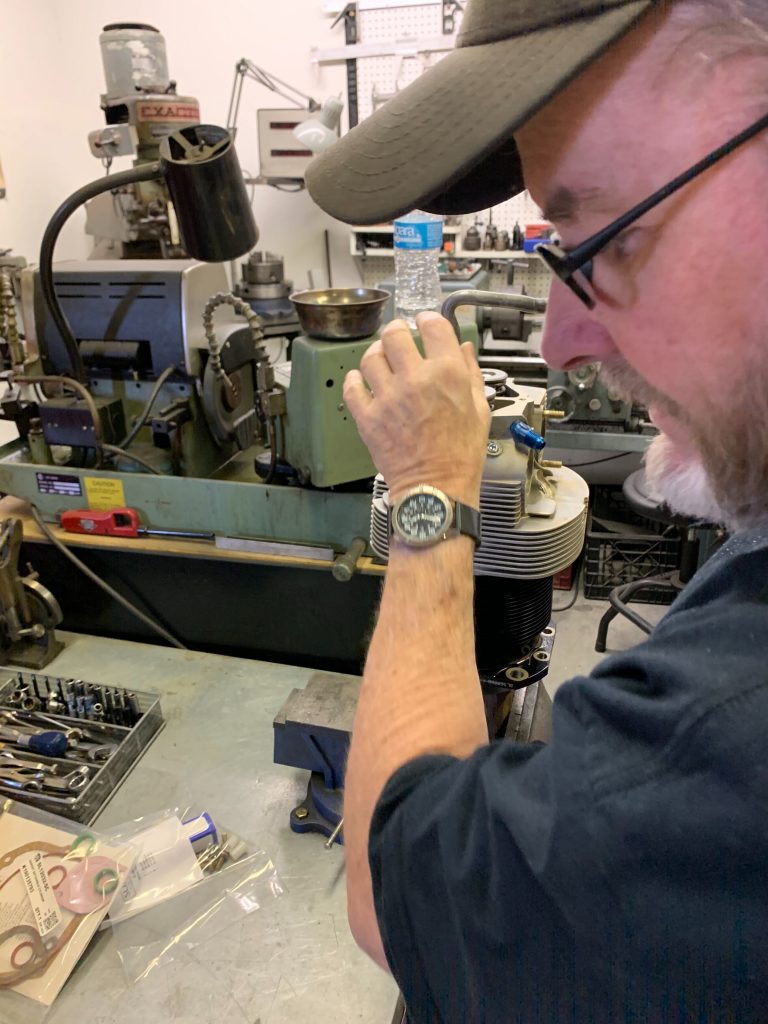
My friend Bob the Airplane-engine Guy got his training at Rolls-Royce, back when the apprentices were still learning on war-era Merlin V-12s pulled from a pile of weedy WWII Spitfires in the back of the lot. Fluke circumstances found him carrying rifles in Northern Ireland and southern Africa, then he ended up in America with his own engine shop. Nowadays, he works out of a packed but meticulously organized hangar in Southern California, where he keeps a dry-erase board with a running total of the number of engines he’s personally overhauled. Currently, he’s at 1786.
My Cessna runs a Lycoming O-360 A1F6D. Imagine a 361-cubic-inch VW Beetle engine, with four air-cooled horizontally opposed pistons the diameter of dessert plates running in bolt-on cylinders the size of Folgers coffee cans. It makes 180 horsepower at 2700 rpm but spends most of its operating life tug-boating the plane through the sky at 2300–2400 rpm, getting 13–20 mpg depending on the winds.
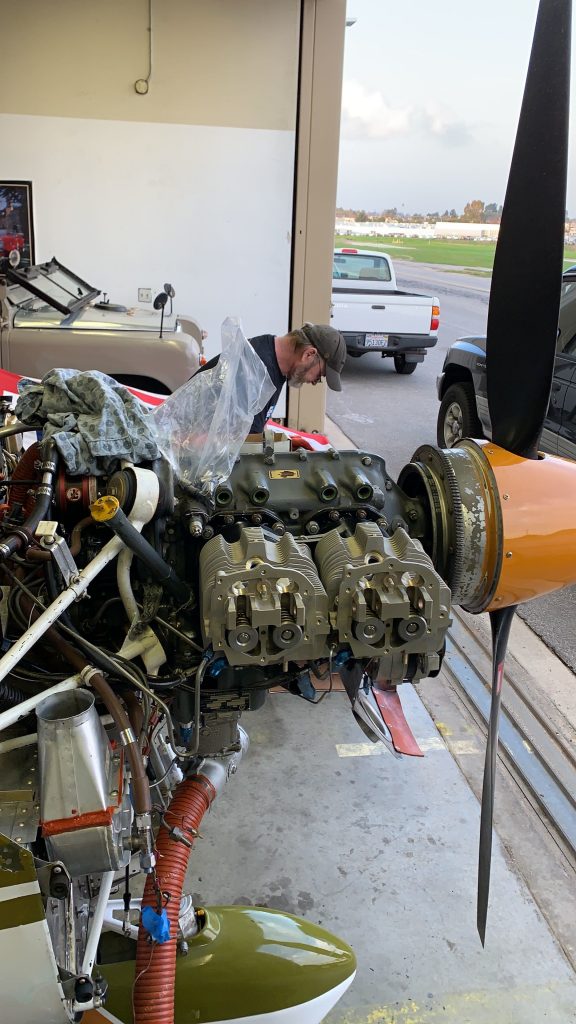
At some point over the past few months, a couple of those cylinders decided they no longer wished to be round inside and instead wanted to see what life was like as ovals. Life was not good, as you can imagine, since the pistons disagreed on this momentous change and preferred to stay round. A combination of high heat and perhaps some inferior metallurgy was suspected, and it was time to strip off the jugs and the pistons inside them and replace all with new hardware. The price of the parts, $4800 all up, is where the similarities between a VW engine and a Lycoming engine end.
I’m on a budget, so I leapt at Bob’s offer of help rather than just turning over the job to a shop. Because, let’s face it, all of us with tight wallets and middling mechanical skills need a Bob in our lives. Years ago, in a hilarious bit about his Shelby Cobra, Bill Cosby joked that everyone who works on cars seems to be named Bob. But our world can’t function without the Bobs, and I have certainly run up my own debts to them as I’ve tried to find ways to keep expensive, complicated machines running on the pay of a magazine writer.
My Bob was a patient instructor. He showed me once, then stood back. Though the new jugs come assembled and ready to bolt on, Bob never trusts the machine work out of the box. So he and I spent four hours taking each of the new cylinders apart and checking the valve seats for fit. We talked about life in 1970s Rhodesia as I lapped the valves, a job I’ve never done before and which I found pretty Zen. It involves applying a dye and a gritty compound to the valves and seats, inserting the valves back into the heads, sliding a length of rubber fuel line over the valve stem, and whittling it between your hands. As you spin the valve back and forth, the crunchiness of the lapping compound biting into the metal eventually softens and smooths out as the valve beds in. After 20 seconds or so, the valve turns as if in butter. You pop the valve out and examine it under a magnifying glass to see if the wear line is uniform around the seat.
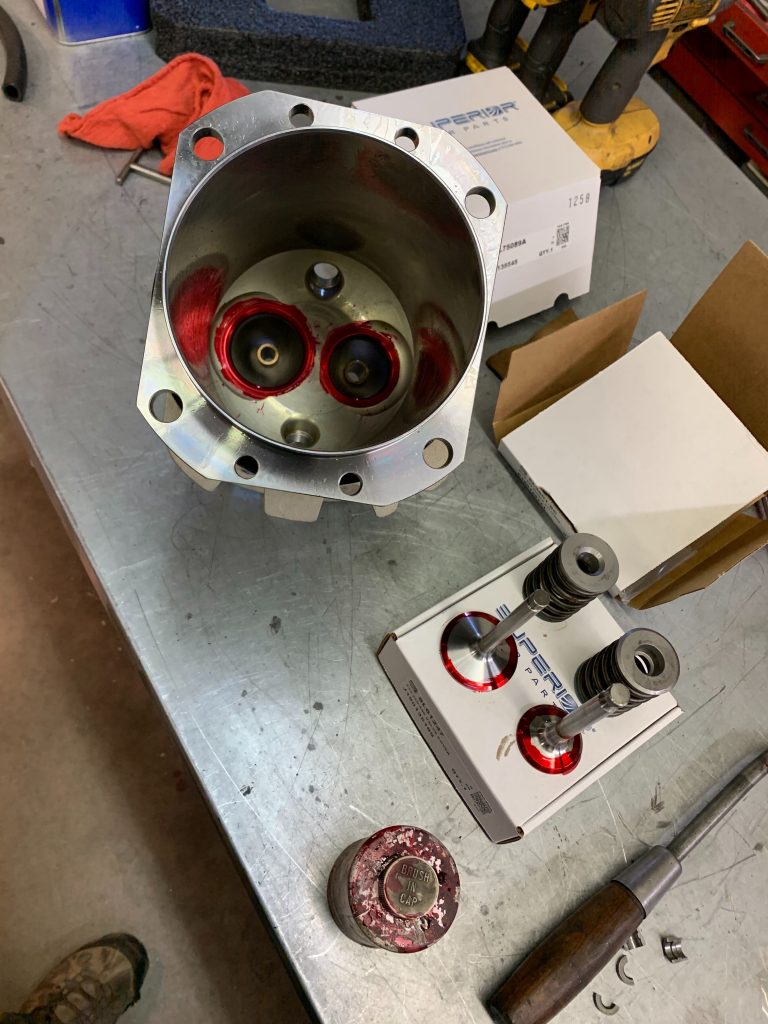
Bob showed me how to deburr the piston rings with a stone after grinding them to the requisite 0.008-inch end clearance. He shared stories of rebuild disasters, like the couple of times that a piston slid down the upturned cylinder past top-dead center, whereupon the top ring popped out in the gap in the combustion chamber. At that point the piston was hopelessly stuck and had to be cut out with a torch.
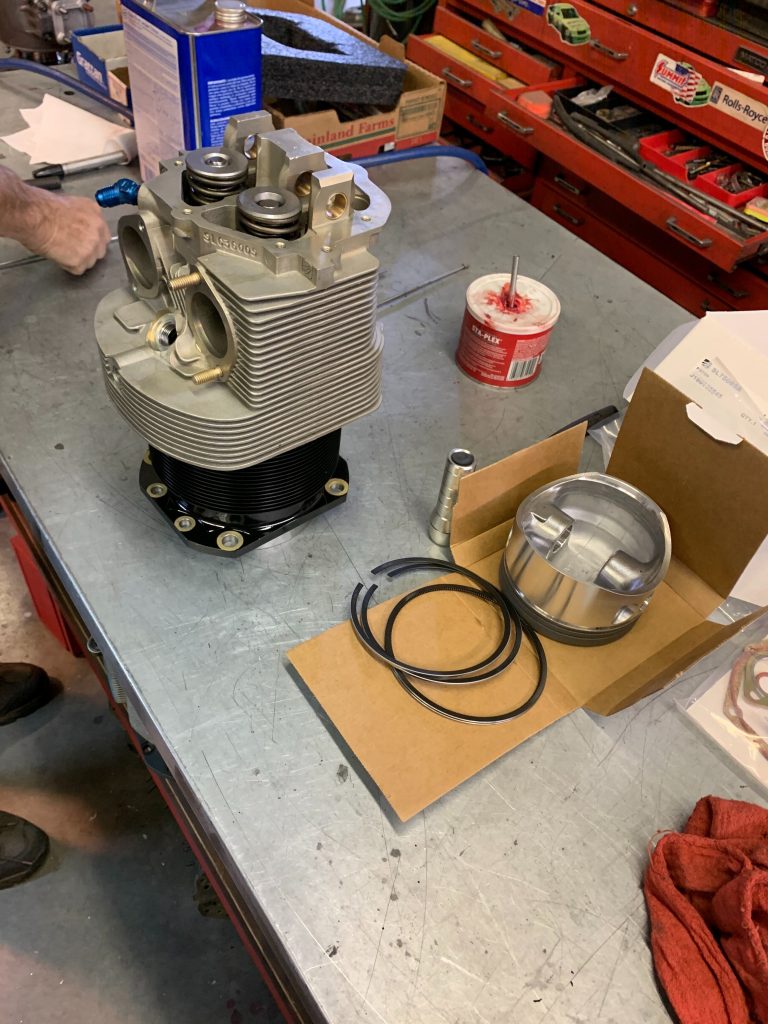
Back at the plane, I slid the wrist pins through the pistons and con rods, which were flopping out of the crankcase, while Bob pressed the jugs down onto the studs. A couple of Bob’s C-shaped wrenches, which looked like they had 1786 engines behind them, went to work tightening the eight nuts securing each cylinder. Bob then stood back. A jumble of sensor wiring still needed sorting, but he said I was on my own, that he and electronics are not friends. The engine will be ready to burn gas soon. God bless all the Bobs; we would be lost without them.
